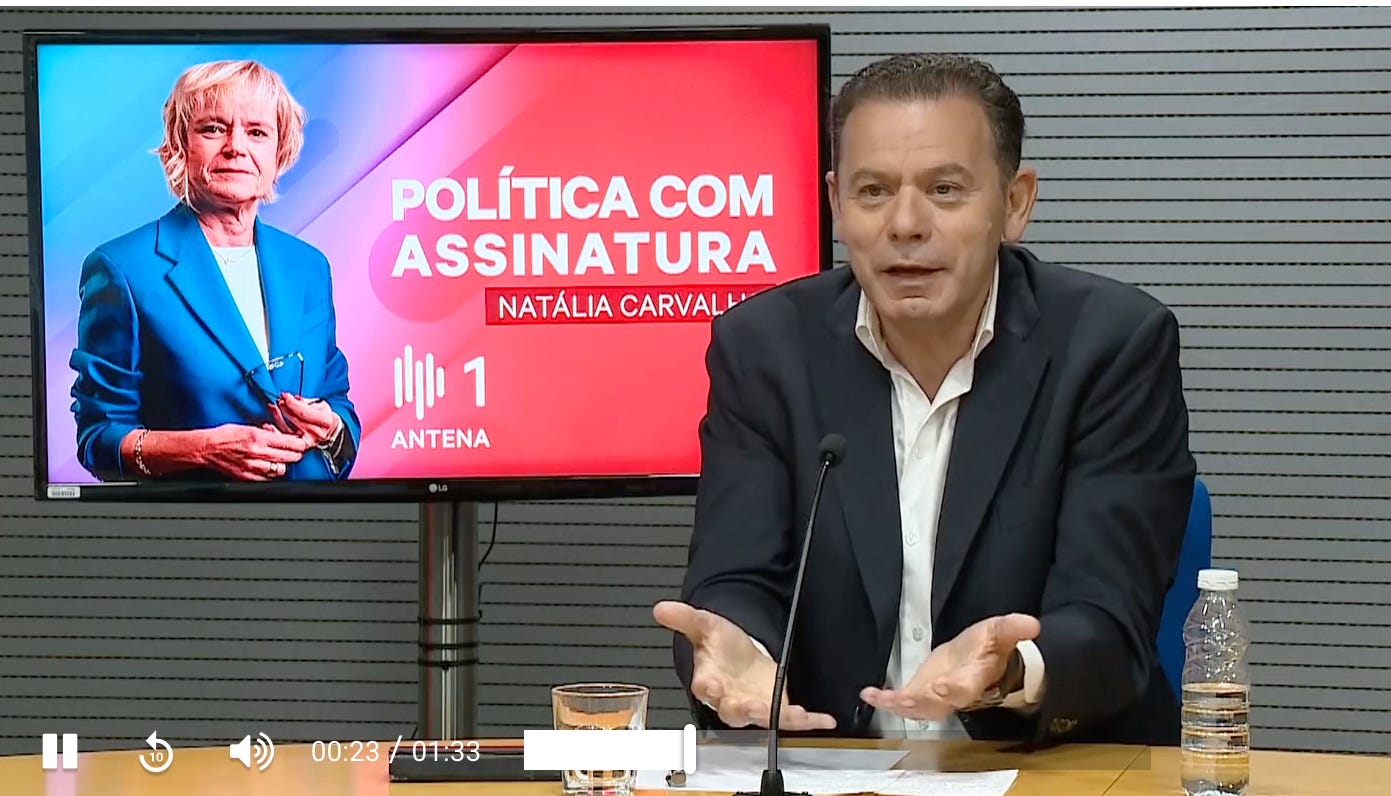Chega “showing responsibility,” says PM Montenegro
In a wide‑ranging interview on Monday, the Prime Minister signaled a shift in tone, appearing to edge closer to Chega.

In a marked shift of tone, Prime Minister Luís Montenegro praised Chega for “beginning to show greater responsibility,” while teasing the Socialist Party (PS) for struggling to adapt to life in opposition.
Speaking at length on Antena 1’s radio show Política com Assinatura this Monday, July 21, as Portugal heads into the summer break, Montenegro said he has “a strong expectation” that the two largest opposition forces will act constructively on the 2026 budget.
He cautioned, however, against a repeat of last year’s scenario in which PS and Chega combined to pass a permanent pension increase, warning such moves threaten “the government’s ability to govern responsibly.”
On Chega
The PM’s comments suggest a recalibration of his approach.
After months of fiery clashes with Chega, Montenegro now openly acknowledged the party’s growing parliamentary weight, noting that it is “showing greater responsibility.”
However, he struck a note of caution: “Let’s see if this is lasting or just a flash in the pan.”
When confronted with criticism that his government is normalizing Chega, Montenegro replied:
“I believe Chega has been normalized in Portuguese political life for a long time,” he said, recalling several bills passed in the previous legislature with votes from both that party and the PS.
“It’s nothing new, when Chega votes with the PS, it’s seen as normal; when Chega votes with the PSD, suddenly it’s not normal, and we’re the ones normalizing it?” he asked.
On the Socialist Party
By contrast, Montenegro sharpened his criticism of the Socialist Party.
After 23 years in power, he said, the PS “is not used to being in opposition” and needs the “democratic humility” to adapt.
He accused Socialist leader José Luís Carneiro of “democratic arrogance” for threatening to sever ties with the AD government over Chega’s role.
Despite not naming a preferred partner, Montenegro admitted the PS has historically been more reliable in dialogue, but he underscored his willingness to negotiate with both sides.
On the budget
The interview comes as the government faces crucial challenges on budget discipline, housing crises, and immigration reforms.
Regarding public finances, and forecasts of a return to deficits by the Bank of Portugal, the European Commission, and the Public Finance Council, Montenegro argued that the higher salaries for public workers and the lower taxes carried out by the Government has only been possible thanks to “very strict” budgetary management.
He pledged to do everything to ensure Portugal does not return to periods of imbalance, stressing that the country’s situation is regarded as exemplary at the European level.
On immigration
On immigration, he dismissed fears that President Marcelo Rebelo de Sousa might block the new law: “It is a great exaggeration to claim that the President of the Republic is preparing to take any action against this law.”
Montenegro rejected the idea that President Marcelo could act as a blocking force.
The head of government assured that there was no rush to push through and implement the Immigration Law, but added: “We simply have no time to waste.”
For that reason, he said, the government worked with local authorities and non‑governmental organizations. “We hired more than 500 lawyers solely to speed up the procedures.”
He insisted Chega did not dictate the government’s decisions on immigration but acknowledged that public pressure has pushed tougher approaches on family reunification.
Regarding this specific measure, Luís Montenegro assured that “we are limiting only in very particular situations” and stressed that “we are not restricting the essential core of families.”
He acknowledged that the government’s goal is to attract young students and family units, which, in his view, “is a more positive form of immigration.”
He said that immigration requires rules and proper reception conditions, and it is “very clear” that Portugal does not have them.
This, the PM said, “is not a matter of perception, but a matter of observation and realism.”
On housing
Addressing the housing crisis and the latest debate on demolitions, he vowed to work with municipalities to prevent people from resorting to “inhuman” shantytowns.
The PM admitted that, in terms of housing, there are many people for whom “the level of effort required to secure decent housing is unbearable if they are to maintain a minimally acceptable life.”
However, in a moment of self‑praise, Montenegro said: “If I were 30 years old and earning an average salary, I would consider myself fortunate to have a government (his own) that exempts me from paying the property transfer tax (IMT) and stamp duty, and provides a complementary guarantee for the part of the mortgage the bank would not cover.”
On public health
Regarding the health sector, Luís Montenegro said that the health minister Ana Paula Martins has “a great depth of knowledge, management skills, the ability to change the situation in the health sector, and at the same time resilience and endurance in the face of difficulty.”
He assured that 70% of his government’s Health Emergency and Transformation Plan has been carried out and that one of the priorities is to tackle waste and fraud in the sector.
Montenegro concluded by admitting that the health system has “a systemic problem that requires political courage to fix.”
On US tariffs
Finally, PM Montenegro also referred to the increase in customs tariffs by U.S. President Trump, calling it “a huge challenge”.
Luís Montenegro foresees “some significant impacts” on both Portuguese imports and exports.
However, he advised caution: “We should not act with hasty impulses.”
He argues that retaliation should not be immediate.
“Retaliation is an option, but it has to be carefully studied,” he concluded.



